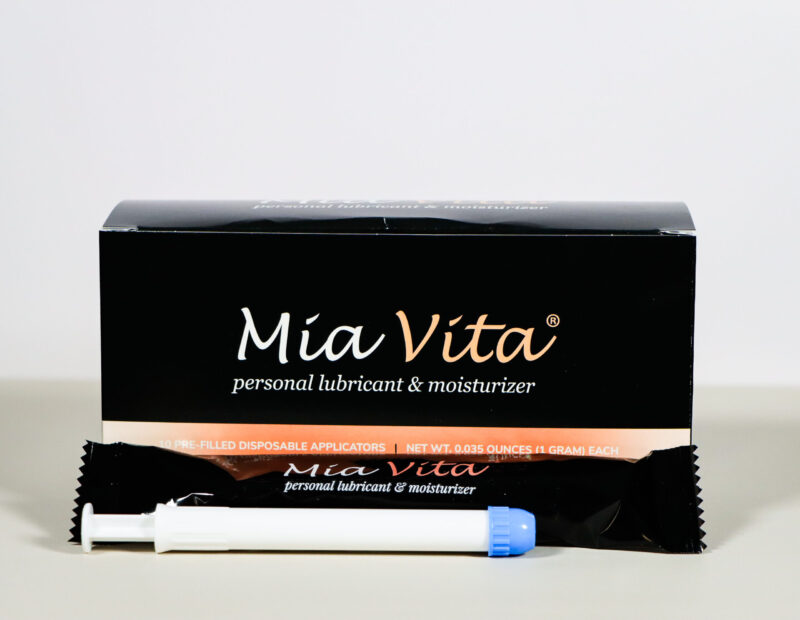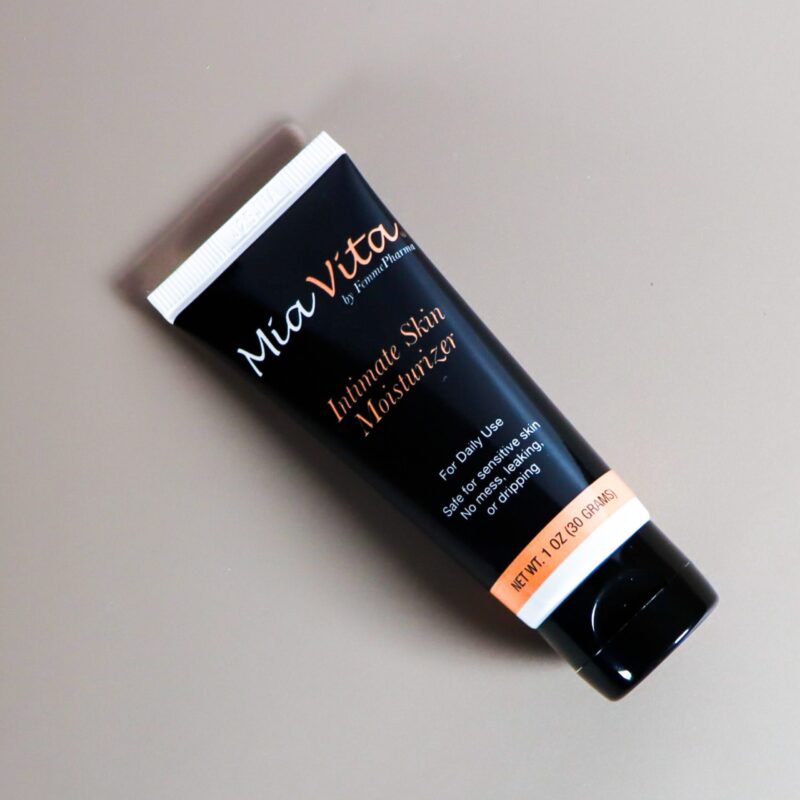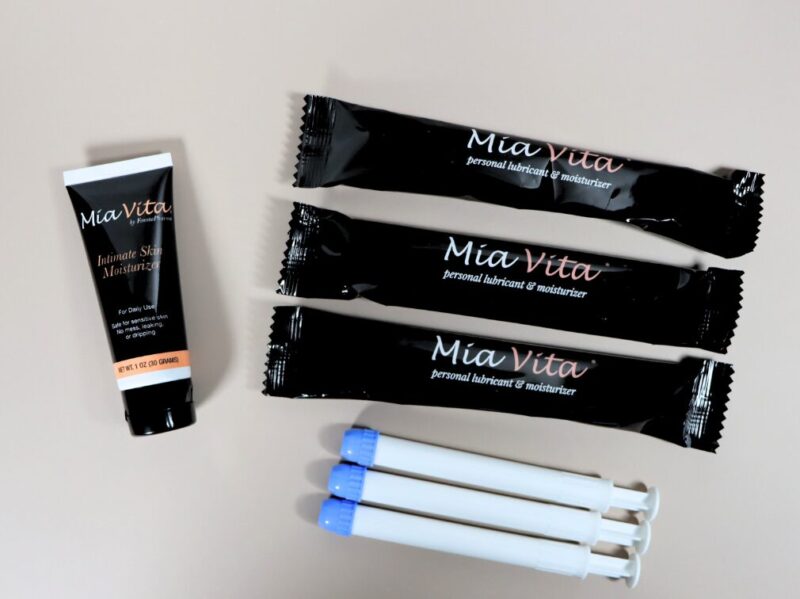As women entering perimenopause or menopause, we shouldn’t have to suffer through the process – we should be empowered by it.
And that’s exactly what one menopause pioneer is doing.
Recently, FemmePharma sat down with founder Denise Pines to discuss how she’s working to empower women through the menopause transition. She also discussed what we can do as a society to bring more awareness to this stage of life.
Herbal products for menopausal relief
Through Denise’s company, Tea Botanics, she offers all-natural, science-based solutions for common menopause symptoms such as hot flashes and brain fog. According to the Tea Botanics website, these products “address the cause of menopause and not just the symptoms”. They regulate the interaction of hormones in our bodies that cause the symptoms of menopause.
Ingredients in these products include the following:
Echinacea: Helps to improve how our bodies absorb nutrients and release toxins.
GABA: Regulates our internal temperature and helps us maintain a sense of calm, balance, and mental clarity.
Black cohosh: Used in Eastern herbal medicine for thousands of years, black cohosh helps balance hormones and improve sleep.
Wild yams: A plant steroid, wild yam root can be produced to mimic estrogen, progesterone, and DHEA. These ingredients collectively alleviate discomfort for various menopausal symptoms like hot flashes and night sweats.
These herbal supplements may be beneficial to you if you’re looking for menopause relief outside of traditional western medicine (such as hormone replacement therapy). Or in combination with it – a practice known as integrative medicine. Herbal supplements may also be helpful for those who are in treatment for ovarian or breast cancer and need all-natural, non-estrogen solutions for their symptoms.
Menopause transition education and care gaps within the medical community
Another key way we can empower women through menopause is to address the gaps in menopause education and medical care.
As a general population, most of us have been taught very little about menopause. As it turns out, the medical community doesn’t know much more than we do.
Typically, general practitioners — and even ObGyn providers — receive very little training in this area during medical school. So when women come to them with the symptoms of menopause, they may not immediately recognize menopause or perimenopause as the cause. Perhaps misdiagnosing heart palpitations as cardiovascular, or anxiety as mental illness, for example.
It’s time to encourage the academic community to provide more training around menopause. Additionally, the medical community needs to invest more time taking courses and seminars on the topic. In doing so, they will be more equipped to identify the symptoms and help women through the process.
Menopause and investment in women-led startups
One would think that with half the world’s population experiencing menopause, it would no longer be considered a niche market. Unfortunately, that’s not the case.
With the investment community being led primarily by men, it’s often difficult for women’s health start-ups to receive the investment funding they need to build a thriving business. This is partly due to gender bias – where we’re not valuing women’s perspectives in the same way we value men’s – and partly due to a lack of awareness. Men don’t see the issue – either because the women in their lives don’t talk about it, or they don’t know women who are currently going through it. Which brings us to our next point…
Engaging men in the menopause conversation
As women, we can take the lead on the menopause conversation by discussing it with the men in our lives – whether that’s our partner, brother, father, or even coworker. By actively discussing what we’re going through and normalizing it as the common phase of life that it is, we can bring awareness to the topic. Through conversation, we can encourage healthy dialogue, push for systemic change, and advocate for women’s health initiatives.
The menopause transition can seem scary, but it can actually be quite liberating. And by promoting education and spreading awareness, we can encourage society to support us through it as we manage our symptoms and thrive in the latter third of our lives.
Explore More Articles On Women’s Health
What is Cervical Cancer?
Cervical cancer is the uncontrolled growth of abnormal cells in the cervix, which is the lower part of the uterus that connects to the vagina. This usually is a slow process which develops over years starting with precancerous changes in the cervical cells.
Causes of cervical cancer?
Most cervical cancer is caused by a persistent infection by one or more of the high-risk types of human papillomavirus (HPV), particularly HPV types 16 and 18. While most people with HPV will clear or suppress the infection without an issue, some infections persist and can lead to precancerous changes that progress to cancer over time. Smoking and immune problems (such as HIV/AIDs or immunosuppression medications) increase the risk of developing this type of cancer.
Symptoms of cervical cancer?
Typically, there are no symptoms in the early stages, which is why regular screenings, such as Pap smears and HPV testing, are crucial for early detection. As the cancer progresses, some people may experience vaginal bleeding or discharge, pelvic pain or pain with sex.
Treatments for cervical cancer?
Prevention is the most important tool we have against cervical cancer. Regular Pap smears are recommended for people with a cervix to detect abnormal cell changes before they develop into cervical cancer. Often a small procedure to remove precancerous cells is all that is needed to prevent progression. Additionally, the HPV vaccine is a very effective preventive measure to reduce the risk of cervical cancer, especially when administered before the onset of sexual activity. The HPV vaccine is now recommended in females up to 45 years old, but has little harm at ages above that as well.
Once cervical cancer develops, the treatment varies greatly depending on the stage of the disease, how far it has spread, desire for childbearing in the future and overall health. Treatment can include a mix of surgery, radiation, chemotherapy, as well as some target and immunotherapy options.
FemmePharma has been helping women navigate menopause for over two decades. No matter where you are in your journey, you deserve to have knowledgeable, intimate healthcare partners to help you feel your best. Explore our other articles, podcast episodes with women’s health experts, and products to ease your transition into menopause.
Get relief from vaginal dryness, itching, and burning
Abnormal Bleeding
Abnormal uterine bleeding is an almost universal experience during perimenopause or within the first year after menopause and is responsible for an estimated one-third of visits to the gynecologist during this time in a woman’s life. It can lead to health complications such as anemia, fatigue, and pelvic pain, but it can also be caused by an underlying health condition requiring medical attention.
Many conditions that cause abnormal bleeding become more prevalent with age, which can make it challenging to distinguish one of these conditions from the irregular periods that typically happen during perimenopause. Following is a summary of some of the causes and symptoms of abnormal and irregular uterine bleeding.
What Is Meant by Abnormal Uterine Bleeding?
Menstrual cycles normally span from 26 to 35 days, with bleeding for 3 to 7 days and flow that is not excessively heavy, i.e., doesn’t require pad or tampon changes every hour for multiple hours at a time. Anything outside of those ranges is considered abnormal. Bleeding or spotting after sex or between periods is also abnormal. Additionally, having an underlying health condition that impairs clotting or taking certain medications can also cause abnormal bleeding during perimenopause and menopause. It’s important to mention that any bleeding after menopause is always considered abnormal.
What Are Irregular Periods and What Causes Them?
During perimenopause and menopause, the erratic fluctuations of hormones cause periods to become irregular. Perimenopause involves living with the uncertainty of never knowing when, or if, your period will start or stop. When estrogen levels are low, period cycles are shortened, arriving one after the other in rapid succession. When ovulation doesn’t occur (known as an anovulatory cycle), the cycle lengthens. But whether period cycles are shortened or lengthened, all the familiar premenstrual symptoms of bloating, mood swings, and breast tenderness can be present… and seemingly constant.
Period flow can also be lighter than normal—more like heavy spotting than an actual period—or can be extra heavy, such as after an anovulatory cycle. When this happens, the unshed endometrial lining combines with the current cycle, resulting in an unusually heavy flow. Or continuous bleeding and/or spotting can go on for weeks at a time (the proverbial “never-ending period” of perimenopause). Additionally, it’s not uncommon to have spotting or bleeding in between periods. Though normal for this phase of life, these symptoms of perimenopause can be stressful and disruptive.
What Are Some Other Causes of Abnormal Bleeding During Peri-menopause?
In addition to fluctuating hormones leading to irregular periods, the American College of Obstetricians and Gynecologists lists four of the most common conditions that cause abnormal uterine bleeding, including:
- Endometrial Atrophy: a thinning of the uterine lining due to lack of estrogen and progesterone. When the endometrium atrophies, friction can cause erosions along the endometrial surface. This can trigger inflammation, which can lead to bleeding. An estimated 25–48% of menopausal women experience abnormal uterine bleeding due to endometrial atrophy.
- Uterine Polyps (also known as endometrial polyps): small finger-like growths of endometrial tissue that project into the interior of the uterus. These most commonly affect women between the ages of 40 and 49. Endometrial polyps have their own blood supply and may respond differently to estrogen and progesterone compared to the endometrial tissue around them, which can lead to symptoms of abnormal bleeding. Up to 68% of women who undergo a uterine biopsy for abnormal uterine bleeding are found to have endometrial polyps.
- Endometrial Hyperplasia: an overgrowth of the endometrium caused by a hormonal imbalance in which estrogen levels become increased relative to the levels of progesterone. A woman’s risk for endometrial hyperplasia increases as she enters perimenopause, and endometrial hyperplasia increases the risk of developing endometrial cancer.
In endometrial hyperplasia, the endometrial cells may retain their normal structure and function, or there may be changes to the cells. In women between the ages of 50 and 54 with endometrial hyperplasia, cell structure is usually intact, while changes to the structure of the endometrial cells are most commonly seen in women between the ages of 60 and 64. An ultrasound is used to determine the presence of endometrial hyperplasia and is followed up, as needed, with an endometrial biopsy to evaluate the endometrial cells.
- Endometrial cancer is the fourth most common cancer among women. Type I, or estrogen-dependent endometrial cancer, is the most common. Obesity is a major risk factor and is present in 70% of cases. This is due to the ability of fat to store estrogen, thereby increasing estrogen levels in the body and promoting an estrogen–progesterone imbalance. Type II endometrial cancer is non-estrogen-dependent and accounts for 10–20% of cases.
While perimenopausal irregular periods are “self-resolving” over time, other causes of abnormal bleeding during perimenopause require medical help. Always consult your doctor if you are experiencing or suspect abnormal bleeding.
FemmePharma has been helping women navigate menopause for over two decades. No matter where you are in your journey, you deserve to have knowledgeable, intimate healthcare partners to help you feel your best. Explore our other articles, podcast episodes with women’s health experts, and products to ease your transition into menopause.
Shop FemmePharma Intimate Skincare
What is Vaginal Atrophy, and Can it be Reversed?
When women in the perimenopausal, menopausal, or the post-menopausal years speak on the harrowing symptoms that accompany menopause, the least is said about the quasi-popular vaginal atrophy or the fact that it can be reversed. Awareness of symptoms other than vasomotor symptom (hot flashes), or mood changes must be encouraged.
Here’s what you need to know. You can reverse symptoms of vaginal atrophy. And while not every treatment option will work for every woman, scientifically proven options do exist that can reduce symptom severity and help you find relief.
What is Vaginal Atrophy?
As you learned in previous articles, estrogen’s function includes but are not limited to optimal function and lubrication of the vagina. During menopause, the drop in estrogen production causes vaginal atrophy – the thinning, drying and inflammation of the vaginal walls.
In the US, 40% – 57% post-menopausal women, suffer from vaginal atrophy symptoms. Unlike postmenopausal hot flashes, symptoms of vaginal atrophy may occur 2-4 years after menopause begins. Due to its stealthy nature, many women do not accredit the symptoms they experience to vulvovaginal atrophy. Additionally, women are embarrassed to discuss carnal complaints with healthcare professionals.
It is not surprising that only 25% of women are receiving appropriate treatment for vaginal atrophy.
Your age and lifestyle determine to what extent you will develop vaginal atrophy. Some women experience only vaginal dryness while others may only develop dyspareunia, or pain during intercourse. Other common symptoms of vaginal atrophy include itching, urinary incontinence, burning, spotting, vaginal discharge, an urgency to urinate, and in some women, painful urination (dysuria).
Vaginal atrophy also goes by a different name: genitourinary syndrome of menopause (GSM). A mouthful to say, a GSM diagnosis includes symptoms related to the urinary tract as well as the vagina. Both the vagina and urinary tract have a high number of estrogen receptors. This means many menopausal and post-menopausal women experience both vaginal and urinary symptoms at the same time.
Can Vaginal Atrophy Be Reversed?
The negative impact of vaginal atrophy on day-to-day life cannot be understated. And for many reasons, women are hesitant to bring up some of its more sensitive symptoms, whether due to embarrassment or lack of awareness.
All women will experience the natural and expected decline in estrogen upon entering menopause, but nonetheless, vaginal atrophy can be reversed with treatment. It’s time to stop letting these symptoms disrupt our wellbeing and life after menopause.
The earlier you begin treatment for vaginal atrophy, regardless of the severity of your symptoms, the better. Some women even seek preventative treatment to offset the occurrence of vaginal atrophy and its more unpleasant side effects.
If you find yourself looking for treatment options, here are some to consider:
Hormone Replacement Therapy
Replacing depleted estrogen levels is the most effective and most prescribed treatment to reverse vaginal atrophy. The two types of hormone therapy for vaginal atrophy are systemic and topical.
Systemic estrogen therapy comes in the form of a tablet, patch, or vaginal ring and sends estrogen directly into your bloodstream. Women with other post-menopausal symptoms (like genitourinary syndrome) often find the most relief with systemic hormone therapy.
While it’s the most efficient and direct way to receive extra estrogen, it does carry some risks. Systemic hormone therapy may not be the best choice for you if you are at risk for breast cancer or certain heart conditions.
Topical estrogen therapy is an option for women who only have vaginal symptoms. Creams, patches, and gels are common delivery methods for local estrogen and allow your body to absorb the hormone in lower amounts. However, you should be mindful of the ingredients in these topical formulations.
Both systemic and topical hormone replacement therapy can help restore your vaginal lining and reduce vaginal dryness and discomfort.
Vaginal Moisturizers and Lubricants
Lubricants and moisturizers are over-the-counter treatment options for vaginal atrophy. Neither reverses the condition, but both provide relief of symptoms. Using a personal lubricant during sex and a vaginal moisturizer on a regular basis may drastically reduce vaginal atrophy symptoms. Additionally, if you are seeking vaginal atrophy natural treatment, look out for options that contain hyaluronic acid like the Mia Vita Personal Lubricant and Moisturizer. Hyaluronic acid contains hydrating properties is found throughout your body. Vaginal moisturizer is also a good alternative if hormonal therapy isn’t right for you.
Not sure about using a vaginal moisturizer? Take our quiz to determine whether you could benefit.
Laser Therapy
A relatively new option that seeks to reverse vaginal atrophy is laser therapy. Laser therapy encourages collagen production which helps thicken thinning vaginal tissue. As part of a study, women who received laser therapy reported improved vaginal function and health and a reduction in symptoms. While we still need more long-term studies, laser therapy is a promising treatment option.
It’s also important to note that you’ll need to continue the prevention methods of your choice, otherwise vaginal atrophy will progress. This is why it’s important to talk to your doctor about your symptoms and what may be the best option for you. Every woman is different and deserves an individual treatment plan to find relief.
Reproductive and sexual health is not a ‘nice to have’ during perimenopause, menopause, and post-menopause but a key element to your overall health and wellbeing. Reversing symptoms is possible, which is why it’s vital to speak up and ask for help as soon as you notice symptoms.



